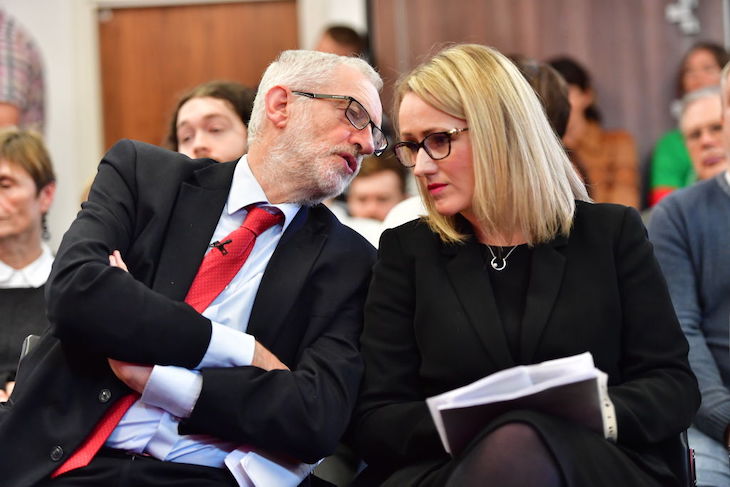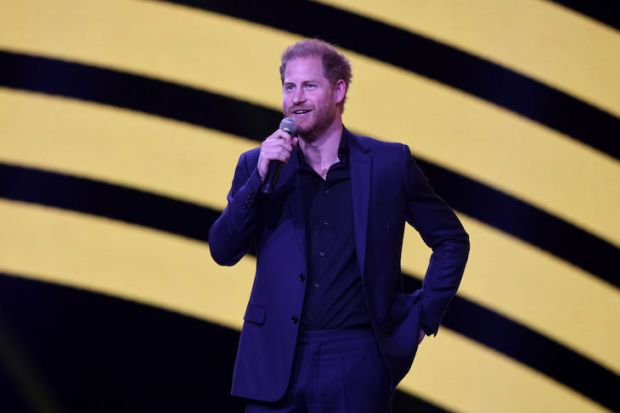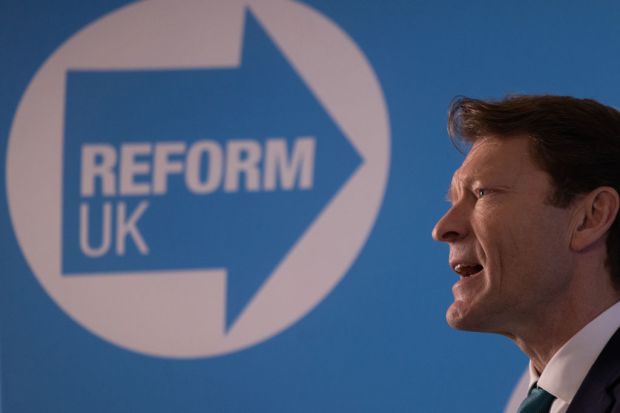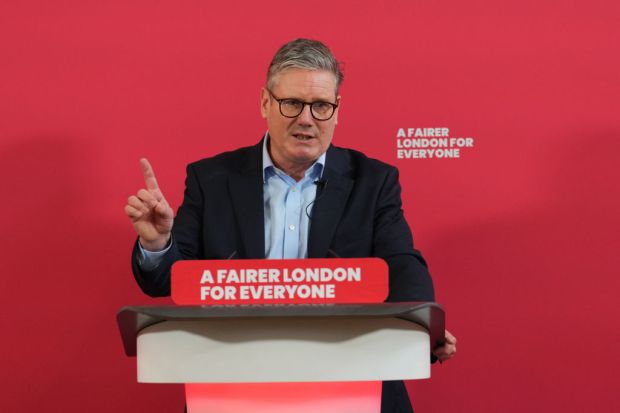The far left controls the Labour bureaucracy, its National Executive Committee, its policy making, manifesto writing, many of its constituency parties, and its affiliated unions – either directly in the case of Unite, or indirectly by terrifying their leaders into complicit silence, as in the case of Unison,
If it adds the deputy leadership to its trophy cabinet, it doesn’t matter who the next Labour leader is. He or she will be a bird singing in a gilded cage. The party will remain under the far left’s control
Given these riches, its worth asking whether the far left needs the leadership. It wants it, no doubt about that. Rebecca Long-Bailey’s opponents know it will use every trick to ensure she succeeds Jeremy Corbyn. ‘We have already hired lawyers and prepared online countermeasures,’ an aide to one of Long-Bailey’s opponents told me, and I can see why they will be needed.
At this week’s meeting of the Parliamentary Labour Party (what’s left of it) Jennie Formby, Corbyn’s general secretary, told MPs there would be ‘proper vetting’ of new members before they were allowed a vote in the leadership contest. You better believe her.
Rule changes Corbyn and the unions pushed may be used to rig the ballot. As well as the support of ten per cent of MPs and MEPs, leadership candidates must also have nominations from either five per cent of constituency Labour parties or at least three affiliates (at least two of which shall be trade union affiliates) comprising five per cent of affiliated membership. The trade unions have considerable power. Only 12 unions are affiliated to the party, of which only five are big enough to get a candidate across the five per cent hurdle – Unite, Unison, GMB, Usdaw and CWU. It’s easy to see how several of the candidates being talked about today won’t even make it on to the ballot paper.
Meanwhile, Labour’s ‘outriders,’ who have brought such disgrace to the party and the wider left, will be wound up to spread smears and outright lies about anyone who challenges Long-Bailey. Indeed, men and women who cheered on and covered up for the most anti-Semitic major party Western Europe has seen since the fall of Hitler are already hard at work portraying Jess Phillips as a racist (she was once rude to Diane Abbott, which is what passes for racism in a party that tolerates Holocaust deniers and misogynists without so much as a blush of shame).
Speaking of shame, Momentum has been Boris Johnson’s most formidable asset. If Jon Lansman and Laura Parker possessed an ounce of humility they would retire. They are in large part responsible for Labour’s most devastating defeat since 1935; a defeat it could take a decade or longer to recover from, if Labour does not change.
But they are not retiring, nor showing the smallest sign of contrition. In part because Momentum’s failure was not total. It spoke to lefitsh people and helped persuade them with varying degrees of reluctance to vote Labour. This, rather than the British public, is the audience anyone hoping to lead the party has to convince.
An analysis by the media consultancy 89up showed how good Momentum was at sectarian politics. It found that Momentum’s video operation — consisting of 15 full-time producers and editors, supported by around 700 volunteers who scour the internet and broadcast media looking for material that can be turned into memes — had achieved more than 50 million views on Facebook.
Their propaganda skills will be deployed in Long-Bailey’s favour and against anyone who presumes to challenge her.
Yet to use Corbynite language (‘Jezzerish?’) the battle for the Labour party is not just about personalities. The far left controls the party machine, and for as long as that control holds, it gets to set rules and policies and write the manifesto. Lansman, John McDonnell and Jeremy Corbyn will still be able to dictate policy from the sidelines.
Corbyn’s potential replacements know it and fear it. Why else is Keir Starmer touring the TV studios saying he wants to build on Jeremy Corbyn’s ‘radicalism,’ and warning against going ‘back to some bygone age’. That would be the bygone and indeed long-gone age when Labour won elections, a basic task it has not managed since 2005.
The defeat of 2019 was not just orchestrated by Corbyn, McCluskey, Lansman and McDonnell but by hundreds of camp followers in the party’s bureaucracy, structures, affiliated societies and trade unions. They will fight to deny responsibility and fight harder to cling on to their positions and influence.
All of which is a long way of reaching an obvious conclusion: that Labour needs to change itself, not just its leader. For what it is worth I think the power worship, the unearned self-righteousness, the racism and the rank stupidity have sunk too deep for Labour to ever change. But I would be happy to be proved wrong.
Got something to add? Join the discussion and comment below.
Get 10 issues for just $10
Subscribe to The Spectator Australia today for the next 10 magazine issues, plus full online access, for just $10.




















Comments
Don't miss out
Join the conversation with other Spectator Australia readers. Subscribe to leave a comment.
SUBSCRIBEAlready a subscriber? Log in